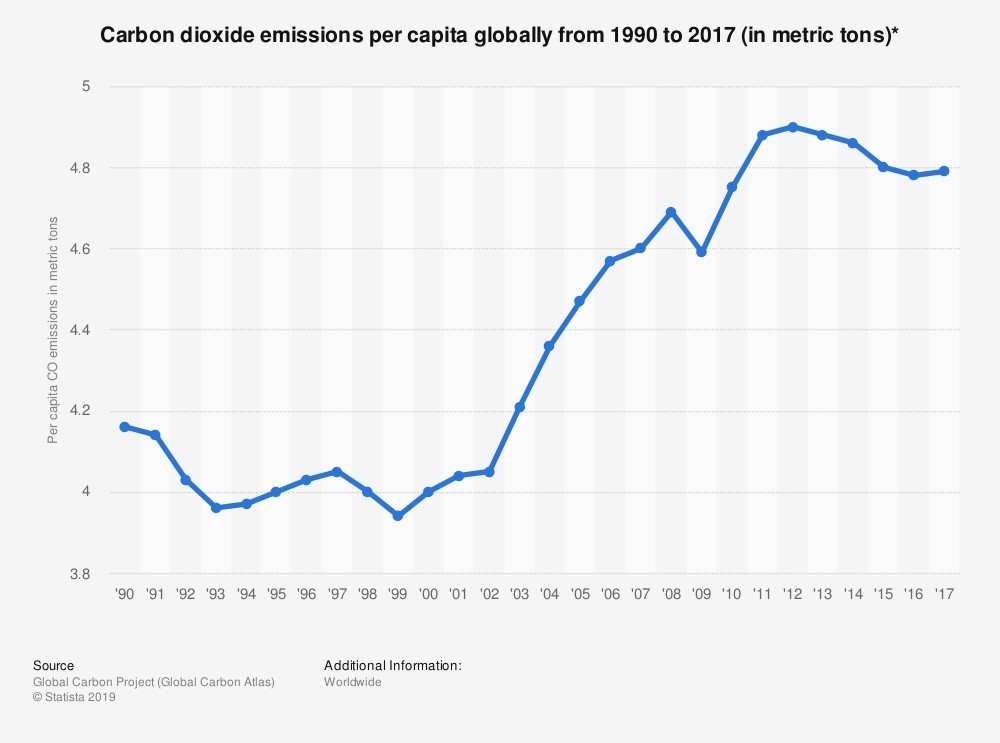One-sixth of the world's economy has now pledged to cut CO2 to zero by 2050
quinta-feira, julho 25, 2019
 |
| Net zero pledges have been made law by Norway, Sweden and UK, while Suriname and Bhutan are already below net zero. Image: REUTERS/Peter Andrews |
If we have any hope of keeping climate change within safe boundaries, global emissions need to fall to zero within the next three decades. That was the message of the Intergovernmental Panel on Climate Change in 2018. So just how far have we got to go?
Seventeen nations and 34 major companies are planning to or have already set targets to reach net zero – which means balancing any emissions by absorbing an equivalent amount from the atmosphere – putting them on track to meet zero emissions by 2050, according to research by UK non-profit the Energy & Climate Intelligence Unit.
That works out as roughly 16% of global GDP being covered by targets – or $13.7 trillion.
Net zero pledges are a good blunt measure of whether or not a country is committed to delivering on its share of the climate change temperature targets signed up to by nations through the 2015 Paris Agreement, according to the ECIU.
Two countries, Bhutan and Suriname, are already beyond net zero – absorbing more carbon dioxide than they emit.
Norway, Sweden and the UK have written their targets into law, while Spain, France and New Zealand are currently going through the legislative process.
Alongside national efforts, a number of regions have set net zero targets, including California and some Australian states. Likewise, 23 cities, such as New York, Los Angeles, London and Barcelona, are also aiming for zero emissions.

The next steps
But while it is good news that the need for net zero has reached the consciousness of governments and corporations, there is still huge variation in the strength of their commitment. For example, some countries permit international offsetting of their emissions, while others don’t.
And some targets are limited to carbon dioxide output, whereas others cover greenhouse gases more broadly.
The ECIU report points to a number of nations that are yet to make any substantial moves towards meeting the pledge, though they have all joined the Carbon Neutrality Coalition, an international body that pledges to meet net zero targets. These countries include: Canada, Colombia, Ethiopia, Germany, Luxembourg, Mexico and the Netherlands.
Elsewhere, Estonia and the Czech Republic have held out on economic grounds, which the ECIU says is hard to justify given they have higher per-capita GDP than other nations that have supported the proposal, such as Bulgaria and Romania.
And most notably a number of major wealthy nations including the US, Australia and the Gulf States have yet to put net zero on the agenda. Japan, meanwhile, has only committed to achieve net zero in the latter half of this century.

Is net zero even possible?

There’s no denying reducing global greenhouse gas emissions to this extent is a daunting task. To keep us on track, the aim is to halve emissions by 2030 – but they are currently rising.
And even if we do manage to curb output, an IPCC report has predicted there is only a 50% chance of keeping global warming to 1.5ºC.
That said, studies largely concur that the net zero emissions goal is attainable if we start now. Other incentives like rising carbon prices will make the process more efficient. And although there will be an economic cost, there will also be benefits such as cleaner air and less reliance on fossil fuel imports.
Have you read?
Page: World Economic Forum


















0 comentários
Agradecemos seu comentário! Volte sempre :)